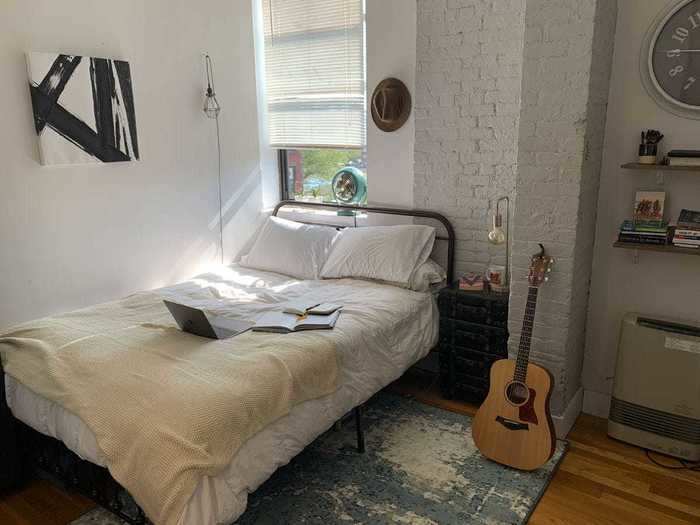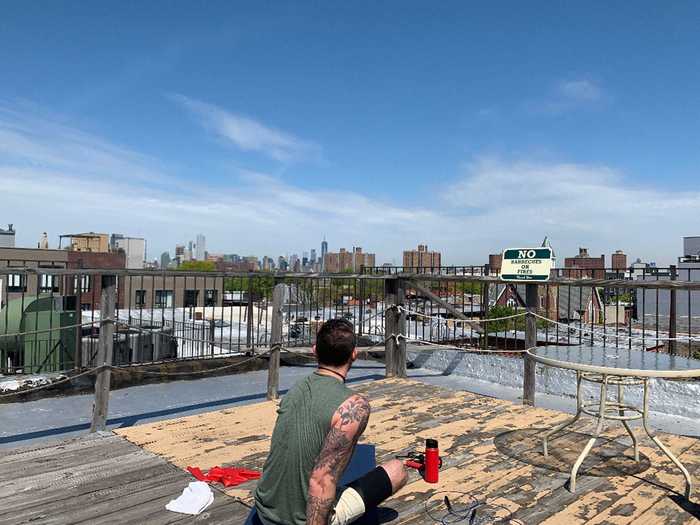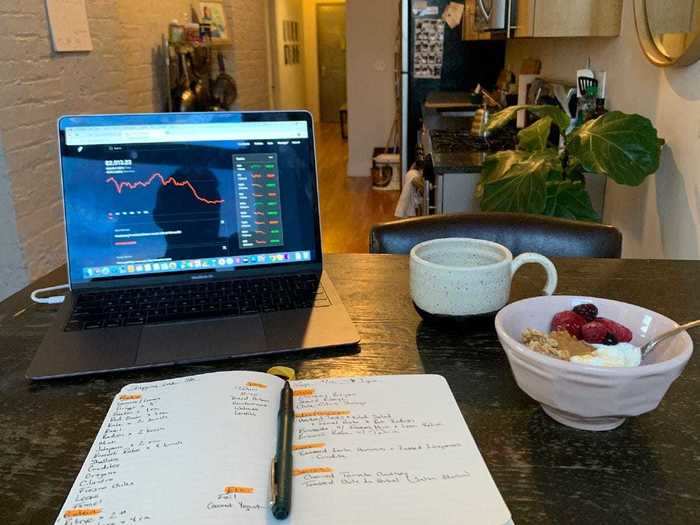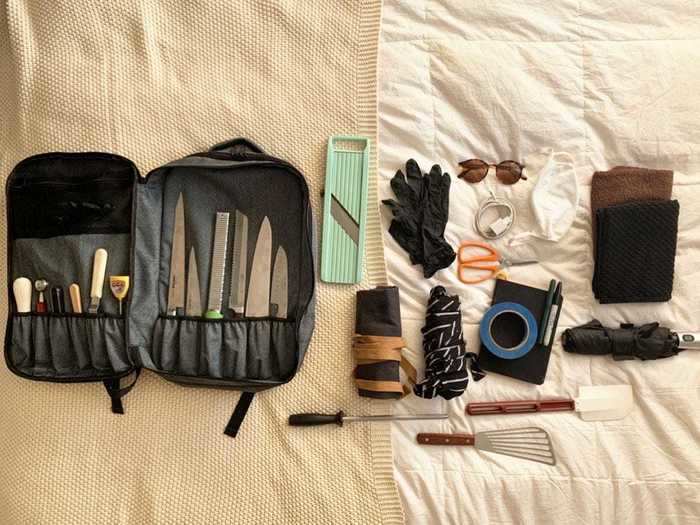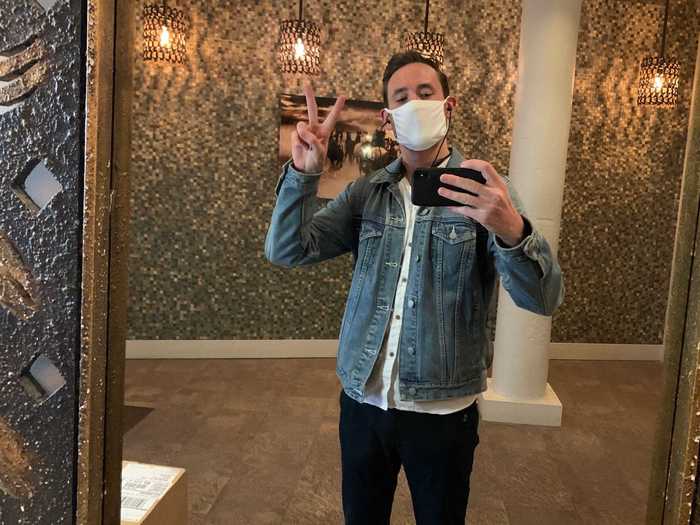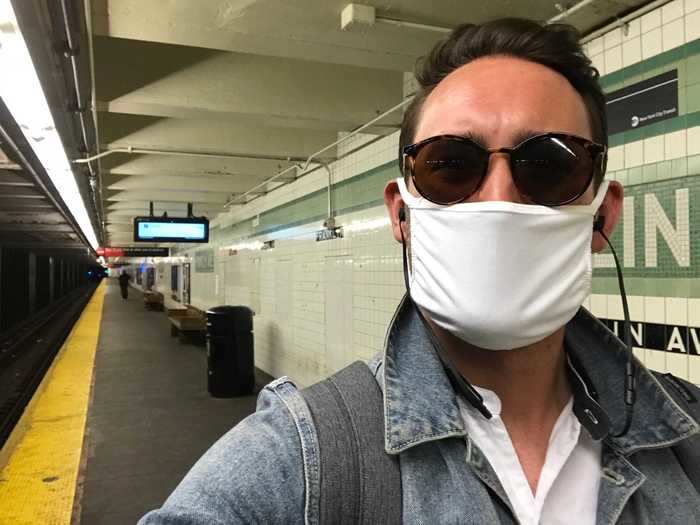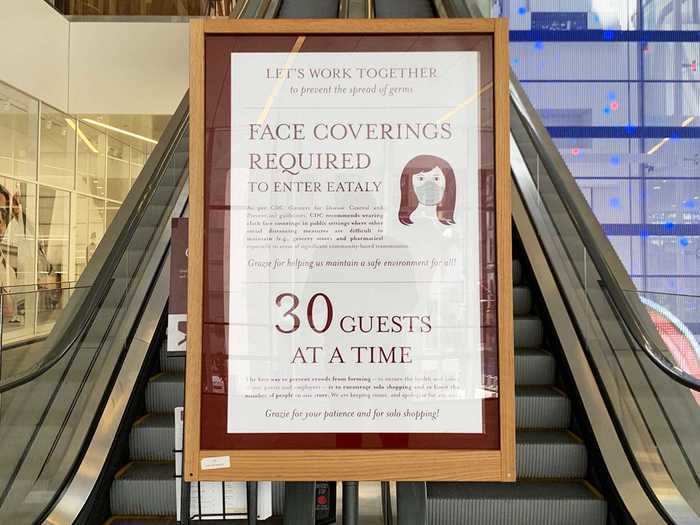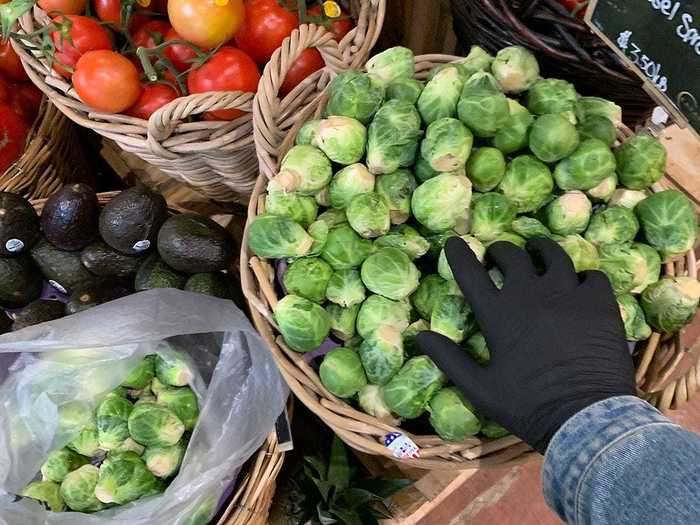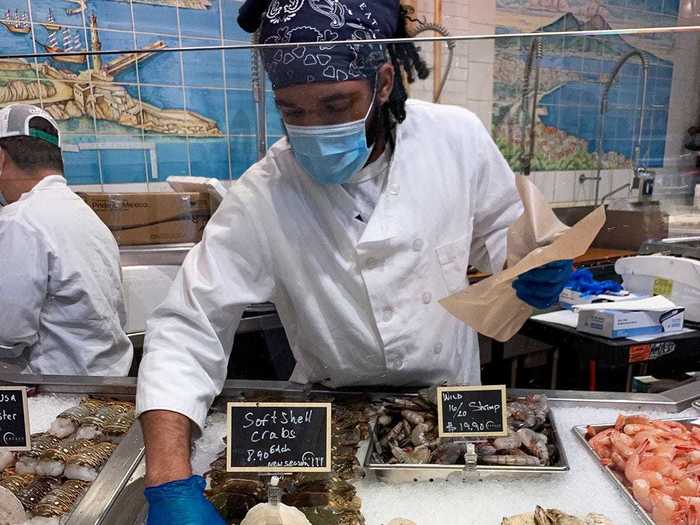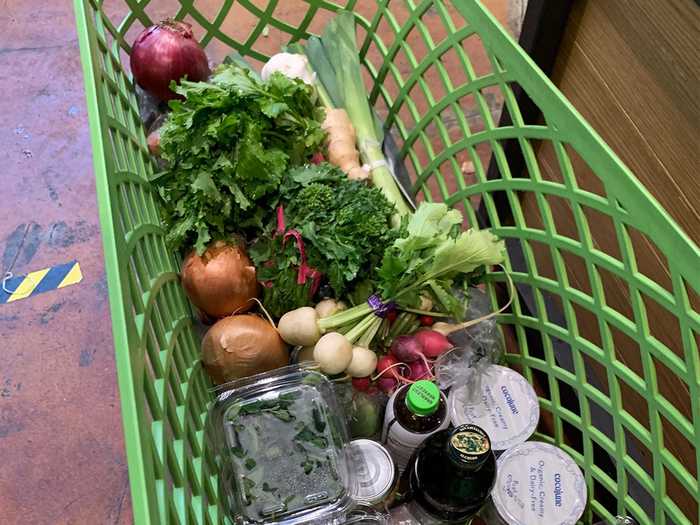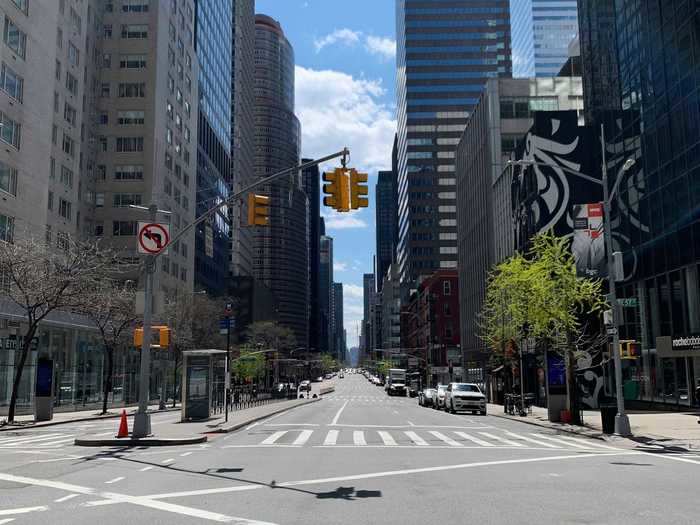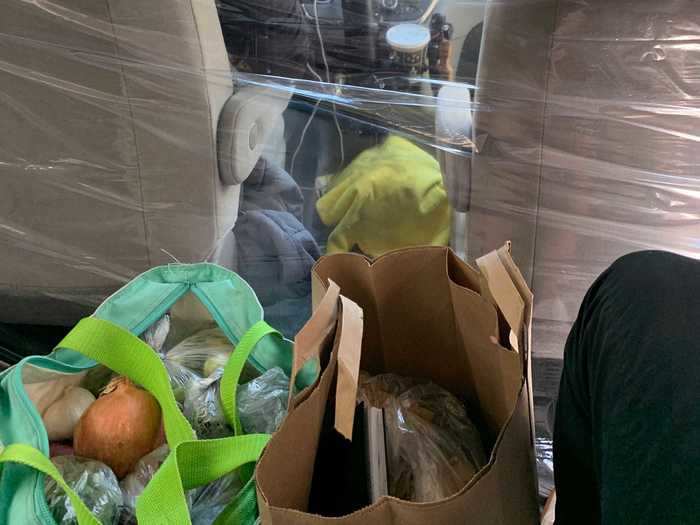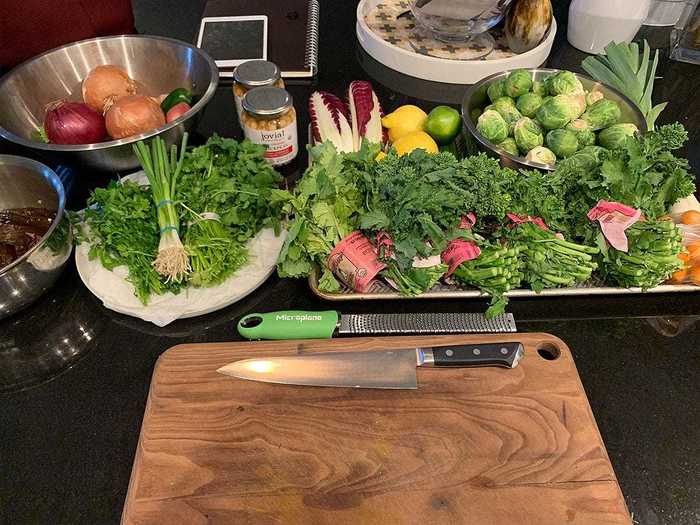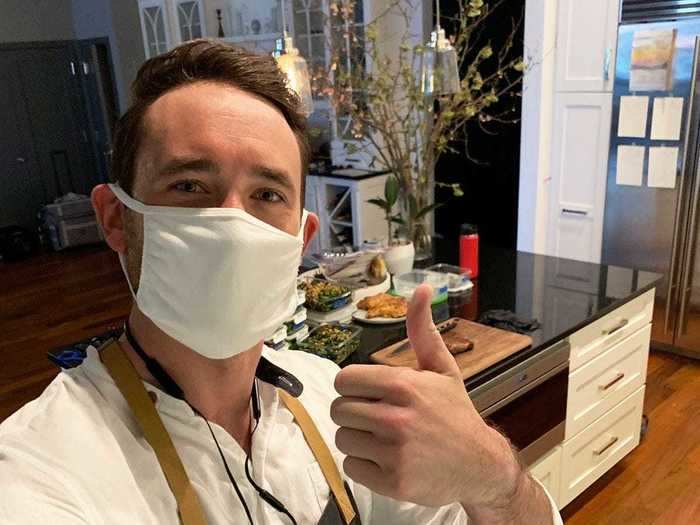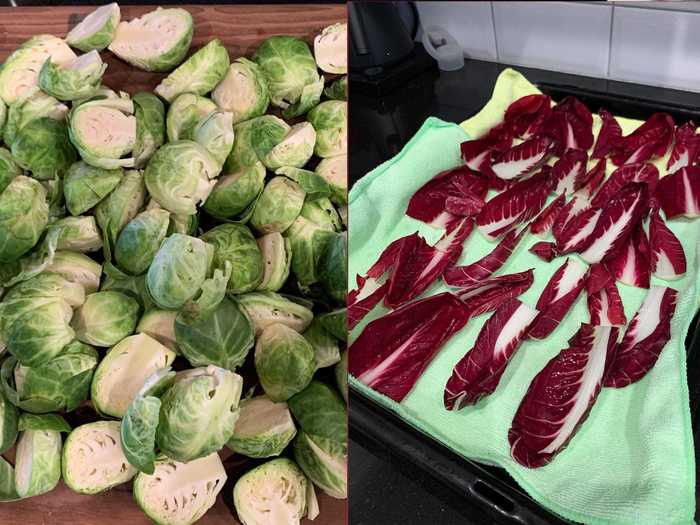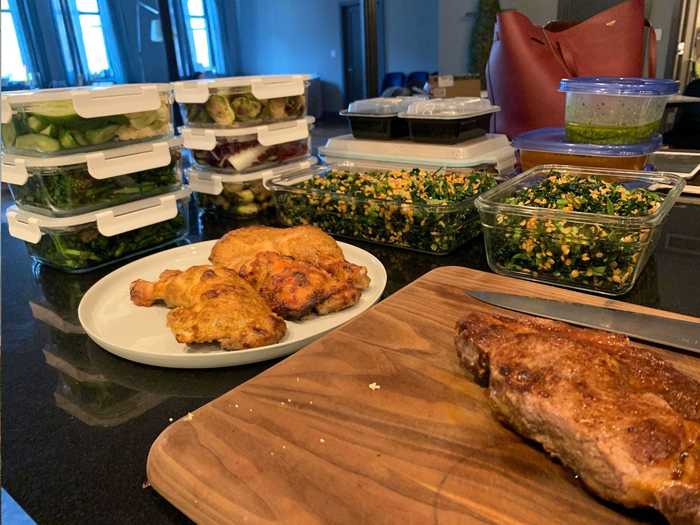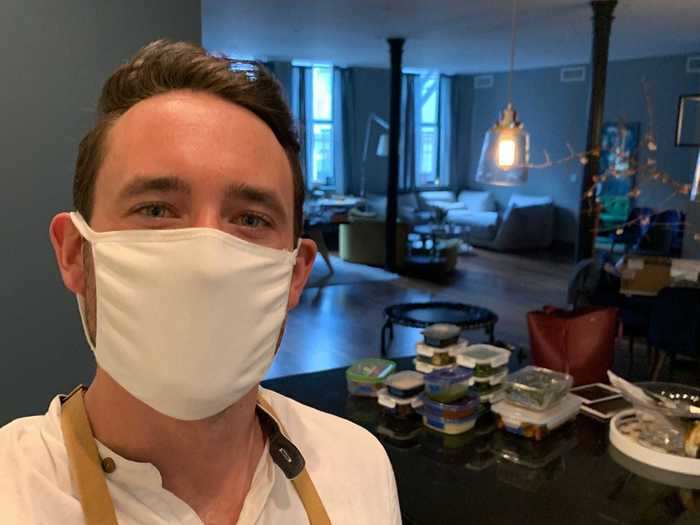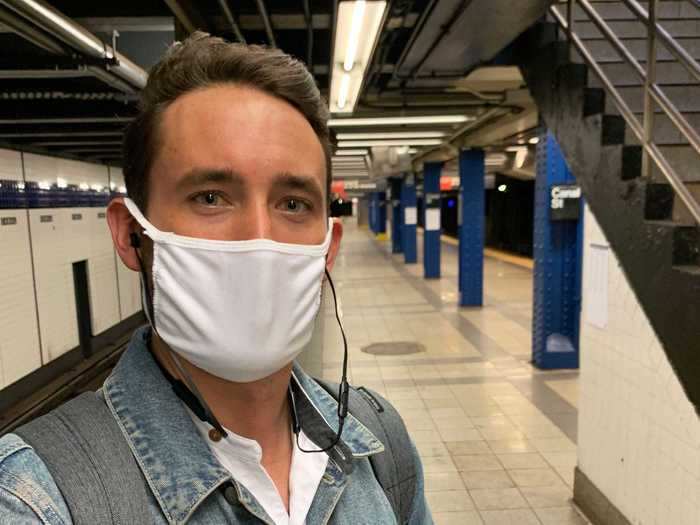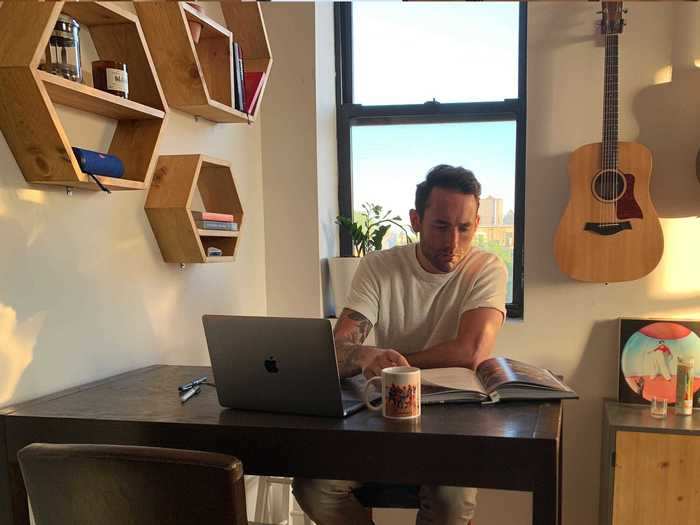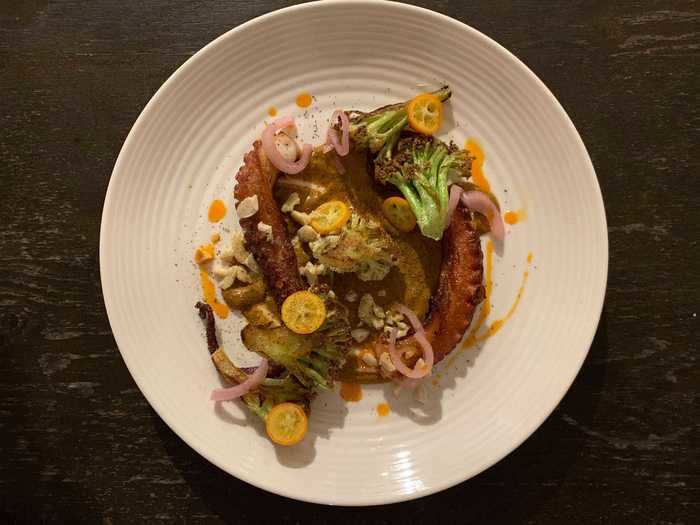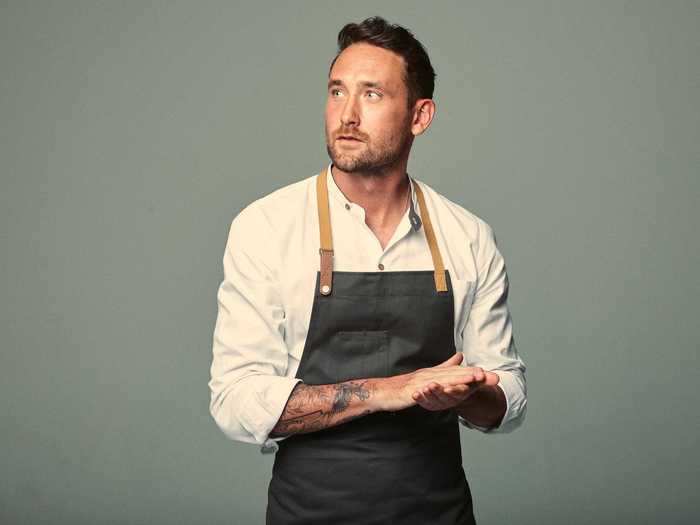Carroll in his clients' kitchen.Courtesy Joshua Carroll
- Joshua Carroll is a private chef based in Brooklyn who cooks for clients in SoHo and the Upper East Side, among other New York City locations.
- The coronavirus pandemic has drastically changed how Carroll commutes to his clients' homes and shops for ingredients.
- Subway platforms are eerily empty, the once-buzzing Eataly marketplace in downtown Manhattan only lets 30 people in at a time, and Uber drivers use plastic wrap to shield themselves from customers in the back.
- Here's what a typical day on the job looks like for private chef Joshua Carroll during the coronavirus pandemic, from the time he wakes up to the time he goes to bed.
Before COVID-19, private chef Joshua Carroll cooked for eight to 10 clients in New York City per week and averaged one to two dinner parties per weekend, some as large as 45 people.
In the age of social distancing and with the New York State on Pause executive order in effect through June 13, dinner parties are off the table.
Now, Carroll prepares food for just a handful of steadfast clients, traveling from his apartment in Brooklyn to their homes in Manhattan once or twice a week. With face mask on and gloves at the ready, he navigates a new world of empty grocery stores and eerily silent subway rides.
Carroll has been a private chef for two years. In April 2018, after working the New York City restaurant circuit — notably at Craft, an upscale farm-to-table restaurant in Gramercy, and The Musket Room, a Michelin-starred restaurant in Nolita focused on New Zealand cuisine — he joined The Culinistas, a network of private chefs for hire. Last year, he left to pursue his own brand.
Here's what a typical day looks like for private chef Joshua Carroll during the coronavirus pandemic.
Read the original article on
Business Insider
Joshua Carroll, a private chef based in Brooklyn, typically wakes up around 7:30 am.
Carroll's bedroom.
Courtesy Joshua Carroll
To start his day, he likes to get his blood flowing. Since gyms are closed due to the coronavirus, he has been running outside or doing cardio on his rooftop.
Carroll exercises on his rooftop.
Courtesy Joshua Carroll
After working out and showering, Carroll sits down at his kitchen table around 9:30 a.m. with a cup of coffee for about an hour to review the day's menu and his shopping list.
Carroll doesn't often eat breakfast, but when he does it's a yogurt bowl with berries, granola, and plenty of honey.
Courtesy Joshua Carroll
Two to three days before Carroll shows up at a clients' home, he reaches out to them with a suggested menu based on what they liked or didn't like from the weeks before and make revisions accordingly.
Next, he packs up his Messermeister Chef Backpack with an assortment of essential tools and tools that clients may not have — like an oyster shucker and melon baller — as well as sanitary gloves.
A flatlay of the gear Carroll packs for an afternoon of cooking.
Courtesy Joshua Carroll
Carroll also brings extra hand towels so that the client doesn't have to do laundry, blue tape to label dishes he'll be preparing, and one to two aprons (he owns about a dozen). If he's feeling fancy, sometimes he'll pack his chef's jacket.
Even on sunny days, he brings an umbrella because he's been stuck in the rain on the job "far too many times."
"It doesn't look good when you show up to a client's house wet, he said," he told Business Insider.
With mask and backpack on, he heads out around 11 a.m. to pick up groceries before heading to his clients' apartment in SoHo.
Carroll leaves his apartment building.
Courtesy Joshua Carroll
Shopping plus transit typically takes Carroll between 1.5 to two hours, but lately, he's been factoring in more time, since trains aren't running as often as they did before the pandemic, and arrival times are often incorrect.
Carroll walks through the streets of Brooklyn.
Joshua Carroll
The days of subway cars packed with people feel like a distant memory to Carroll. "Riding the subway now is, for lack of a better word, creepy because there's nobody around," he said.
The Franklin Street subway platform in Brooklyn is virtually empty on a Tuesday morning in May.
Courtesy Joshua Carroll
Josh typically heads to Whole Foods, but sometimes heads to Eataly depending on the client. Shopping experiences at both have changed drastically. Eataly, for example, now allows just 30 guests in at a time.
A sign marks the entrance to Eataly NYC Downtown.
Courtesy Joshua Carroll
Shoppers are also required to sanitize their hands when they walk in and wear gloves when handling unpackaged fruits and vegetables. Only five people are allowed in the produce section at a time.
Carroll shops for brussel sprouts with gloves on.
Courtesy Joshua Carroll
Before the coronavirus, Eataly would be full of people eating pizza and drinking wine at midday on a Tuesday, Carroll said. Now, it's far from bustling.
An Eataly employee works at the fish counter.
Courtesy Joshua Carroll
Some clients have placed orders through InstaCart, an online grocery shopping service, which has forced Carroll to get creative since shoppers for the service don't always know what to look for in certain ingredients.
View of Carroll's shopping cart in Eataly.
Courtesy Joshua Carroll
Groceries in hand, Carroll heads outside to hail an Uber — but not before pausing to stand in the middle of what used to be "crazy busy" street to snap a photo.
View of an empty street in downtown Manhattan.
Courtesy Joshua Carroll
Almost every Uber that he has taken in the past few weeks has been plastic-wrapped in some capacity to create a barrier between the driver and customer.
Carroll travels in a plastic-wrapped Uber from Eataly to his clients' apartment.
Courtesy Joshua Carroll
Once Carroll arrives at the client's around 1 p.m., he immediately washes his hands, then changes into an apron, turns on the oven, unpacks his groceries, and sets up his cooking station.
View of Carroll's ingredients, organized by food type.
Courtesy Joshua Carroll
Carroll now cooks with a mask on and washes his hands as often as possible, using gloves when dealing with meat that will be served raw. His clients are around, but keep their social distance.
Carroll in his clients' kitchen.
Courtesy Joshua Carroll
The next four to five hours are Carroll's favorite time of day. Carroll puts on a true crime podcast and gets to work cooking five to seven meals. He frequently skips lunch, since he taste-tests each dish he prepares.
View of prepared vegetables.
Courtesy Joshua Carroll
Carroll cooks enough food — a mix of proteins and sides — to last clients five to seven days, though some opt for an abbreviated menu — either four larger meals or five to seven smaller ones — twice a week.
Right: Aged beef ribeye. Center: Chicken leg biryani. Packaged: Brussels sprouts with walnuts chilis and garlic, broccoli rabe with tahini, kale-lentil salad with herbs plus sauces of toasted chile de arbol and tahini dressing.
Courtesy Joshua Carroll
Carroll puts gloves back on to package the meals, then begins cleaning up. He often leaves a small note with instructions, such as which meals to eat first (always fish) and how to reheat certain dishes.
Cooking done, Carroll prepares to leave for the day.
Courtesy Joshua Carroll
Mission accomplished, Carroll heads back to Brooklyn on another empty subway ride.
Carroll in an empty Canal Street subway platform.
Courtesy Joshua Carroll
Once home, Carroll relaxes for a while since he was on his feet for most of the day and files client paperwork as necessary.
Carroll sitting at his kitchen counter.
Courtesy Joshua Carroll
"I have a client who requests the meals calories to be included in her service for an extra fee, which I will add up after the service," he told Business Insider.
After an afternoon of taste testing, Josh usually isn't hungry until around 10 p.m. and will have a healthy, light meal. He heads to bed by midnight.
A fancier-than-usual dinner: octopus with caramelized cauliflower, kumquats, and salsa macha.
Courtesy Joshua Carroll
"Demand has definitely changed because of the worry," Carroll said, noting that dinner parties — on hold for the foreseeable future due to social distancing mandates — pay twice as much as food prep services.
Joshua Carroll is a Brooklyn-based private chef.
Louis Browne / Courtesy Joshua Caroll
Carroll thinks that the broader restaurant industry may take years to recover. It's going to be "tough for a while," he said he but is hopeful that demand for private chefs will bounce back as New York begins to reopen.

